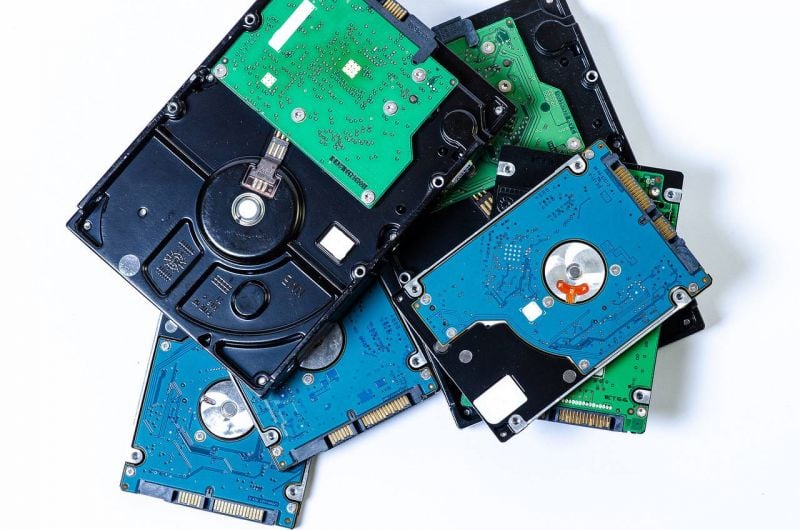
If you’re a computer user at all, you’ve heard of defragmenting and defragmenting your hard drives. Admittedly, with the development of SSDs, this question is less relevant today than it was in the past, but it remains very relevant. Therefore, it is always useful to understand this phenomenon and to know the solution that must be implemented to reduce it.
What is retail?
Every time a file is saved to a computer, it is written to disk in blocks. To take an analogy, it’s a bit like when you write text in a notebook, with a breakdown of each page. At the beginning, when the medium is empty, all parts are recorded in succession, one after the other. But each time a file is deleted, the place it occupies is freed up to accommodate new files that are obviously not the same size. Very quickly, new files are cut into different pieces – fragments – that are scattered all over the place. To continue with the notebook analogy, it is as if the texts found themselves scattered on non-consecutive pages. This phenomenon is known as fragmentation.
While fragmentation isn’t a problem on SSDs, which use electronic circuits, it’s different on magnetic hard disks, which are mechanical devices: like vinyl turntables, they have an arm that moves so that the read-write head is positioned in the proper place. And when the disk is highly fragmented, the head makes continuous movements to read and write files, which affects its performance – in terms of access time and throughput – by simultaneously slowing down the computer, which becomes less responsive.
And it turned out to be a crafty phenomenon. Because in addition to the files that you consciously create or download, there are countless items that come from operating system updates and invisible data from the Internet (cookies, cache, etc.). As a result, whatever you do, your discs become real Swiss cheese!
But since this phenomenon has been known for a long time, it is under control. Operating systems such as modern hard drives include functions to reduce this. Like defragmentation, the function of grouping scattered parts of files to speed up their reading. The process was especially efficient and delicate with the first hard drives…and still is today! But technologies have evolved, and with them the answers with new defragmentation and optimization tools for the latest storage media.
On the other hand, SSD hard drives use electronic circuits instead of mechanical devices. Illustration by Bigstock photos
Should you defragment your hard drives?
Yes, magnetic hard drives should always be defragmented so as not to slow down file access. But if you have a computer with Windows 7 and a fortiori Windows 8 or 10, or even a Mac with an operating system less than ten years old, your operating system takes care of everything. Anyway on internal disks, be it hard disks or SSDs. If you haven’t touched any of the system settings, it optimizes your disks regularly and automatically, focusing on the times you’re not using your computer.
On Windows, the process is just as automatic as on MacOS. But with the tools provided by Microsoft, it is also possible to initiate specific optimization and modification programming of the defragmentation operations planned by Windows.
When should you defragment?
If you have fairly minimal use of your computer (you can edit some large files), leave it to your operating system.
In order not to reduce computer performance, it is important to delete unused files from time to time in order to keep, for example, 10-20% free space on the disk (regardless of its technology). This gives the system more space to store new files, and its defragmentation and optimization mechanisms will do the rest.
On their website, disk manufacturers offer free optimization and repair software for download (more often for Windows than for macOS and Linux).
Should an SSD be defragmented?
This is a statement we often encounter: “It’s dangerous to defragment an SSD. Remember, an SSD is a disk consisting only of electronic memory cells (like a USB key), unlike a magnetic hard disk with a read head that moves around.” Three notes on SSDs:
– The usual defragmentation of hard disks does not matter in an SSD, since there is no mechanical arm to move. Regardless of the location of the memory cell and part of the file, it is read at the speed of an electron.
Writes to an SSD increase wear: Running a tool that spends its time moving file fragments from one place to another can reduce the life of the media.
– Since SSDs and electronic memory still need to be optimized regularly, they have their own optimization mechanisms: they are called TRIM commands.
Sources: writing and the web
If you’re a computer user at all, you’ve heard of defragmenting and defragmenting your hard drives. Admittedly, with the development of SSDs, this question is less relevant today than it was in the past, but it remains very relevant. So it is always useful to understand this phenomenon and know what solution to implement…





